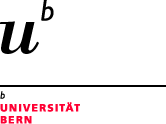Interfakultäre Koordinationsstelle für Allgemeine Ökologie (IKAÖ) |

Forschung
its main insights gained - in brief
1. Participation in local resource and conflict management
Participation is an indispensable, dynamic instrument which in the context of development ensures the achievement of sustainable livelihoods, efficient mobilisation and use of resources and guarantees a balanced system, encompassing social peace and stability. Implicitly, participatory approaches promote the mobilisation of „more“ human resources than this is being done in conventional resource management. In addition, participatory approaches aim at empowering the weaker strata of the society, to provide them with power in the respective project or management arrangement. (Higher) participation, therefore, is instrumental to a more efficient management and to the empowerment of the weaker parts of the concerned actors.
„Control over decisions and resources“ the particular actor category exerts is useful for the analysis of participation. In the South, participation may reinforce the „local visions“ of deciding actors although centralised political structures tend, however, to persist.
In Switzerland, „redistribution of power“ resulting from participatory approaches would be limited to the administrative framework. Within the administration, a shift of power from one unit to another one can be observed.
Indispensable conditions for effective participatory approaches have been identified. Donors (in the South) and national governments are to support the development of an enhancing political, legal and administrative framework. The Swiss experience shows the need to realistically define and possibly limit the scope of participatory approaches within the given legal and political framework. „Political connectivity“ („politische Anschlussfähigkeit“) constitutes an overall pre-condition for sustainable solutions.
2. Knowledge management in the context of rural livelihoods
The practices of using natural resources (within livelihoods) are guided by knowledge people have acquired over time. These may stem from their own experimenting, from trial and error, from what people saw others doing, by trying to adopt or adapting what others do. Certain practices would be in need of change to avoid negative consequences. Changing resource use practices need new knowledge on how to do it. Knowledge management is encompassing „learning cultures": besides technical aspects, questions of the enabling (or disenabling) environment for learning, and for making use of, or creating, new knowledge are also addressed.
The use of natural resources constitutes one component of often complex livelihoods. Knowledge management related to natural resources is thus embedded in a wider arena of knowledge management.
The level of contact between donors and the local context defines projects: different solutions emerge when donors contact national governments, NGOs or local communities. With respect to the interaction between local resource users and agents of development, improved knowledge management requires an improved culture of interaction and exchange regarding „learning“ between the involved actors: „Not knowing others’ knowledge leads to imposition.“ Corresponding platforms (long term involvements) are required at different levels. Access to knowledge needs to be facilitated. Principles such as empathy and brokering are suggested to guide interaction: „Put people into conctact and let the users choose the technology.“
Case studies show, that inmigrants, relatives or seasonal migration are main sources of knowledge. There is need to consider the relationship between inmigrants and relatives, and the agents of development.
Manuel Flury
5.1.2000
